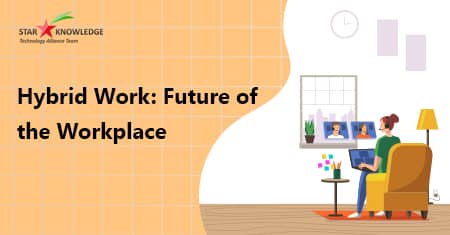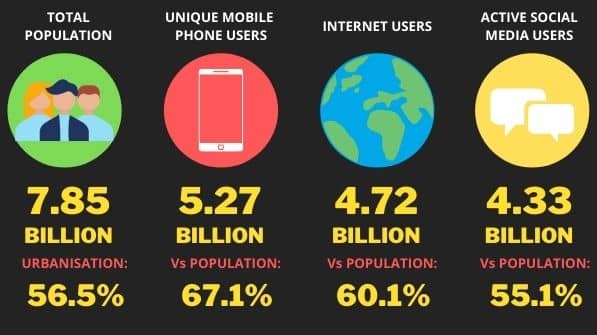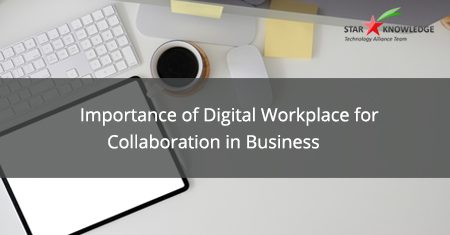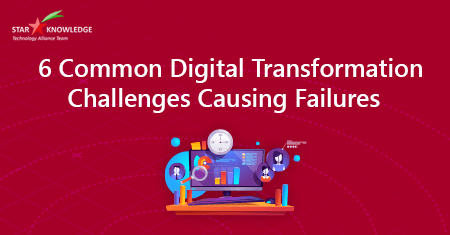

The past year has been a tumultuous ride for the entire human race. All of us have faced several challenges balancing work and personal life with the ongoing pandemic. We have all witnessed a sudden shift in the work culture and have now started embracing digital solutions rapidly to uphold work efficiency and employee cohabitation. However, most businesses had the challenge to map how they would transition from their infrastructure to the cloud and what would remain on-premises, without having the future predicted on their journeys that defines the future of the work culture called the Hybrid Work.
The future of the work lies in hybrid work culture and there is no going back to a complete on-premise solution. The world was not looking to go into the cloud/ hybrid disruption until a few more years. However, this has accelerated in 2020 with most companies having changed to either hybrid or complete cloud solutions.
Brad Smith (Microsoft President) says – the disruptions in America caused by twin events like the great depression and World War II made government invest in social welfare programs that resulted in the biggest returns which created history in the 1970s. And similarly, the disruption caused in the 21st century by Corona (Covid – 19) made investors turn towards digitalization, due to digital devices and broadband connectivity has become the essential need of people. As per the study from the datareportal, 59% of the global population are now actively using the internet.

Flexible work has become the norm in many industries. The idea of creating a hybrid workspace will make the shift and deal with the transition while maintaining productivity and engagement levels. Even the talent landscape has also seen a shift because of virtual work. From the plethora of surveys conducted, it has been discovered, remote work will benefit both employers and employees overtaking problems that are still present. Hence, many companies are becoming more flexible with the time and location of their employees.
After seeing the global growth in conversions and talent acquisition, it is noted that new work cultures have opened broad prospects and need to improvise in some of the focused areas where better employee efficiency can be seen. The focus is on:
- Hybrid work is going to stay: Hybrid Work is here to stay! The future of playbook work is seeing numerous developments. Still, such a digital workplace injection will make the corporate world more employee-centric, where they can perform without limitations and make work fulfilling. Do keep in mind that the evolving organizational goals help the employees improve work efficiency and boost morale.
- Employers need to interact with employees: Employers may not be able to reach every corner of the digital workplace but need to find a mechanism to identify the challenges and build solutions for struggles that are vital for organizational growth.
- Condensing exhausted workforce: The study from Microsoft revealed 1 in 5 respondents stated bad work-life balance, where 54% feel overworked, and 39% feel exhausted. And the reasons related are unscheduled and unplanned communications and reply rates in chats which are 99% remained unchanged year by year, made workers feel exhausted.
- Gen Z or new employee management: Hiring freshers is still faced as overhead from all the recruiters due to hiring and training difficulties, Microsoft has done an education survey for this with the help of LinkedIn by providing free online courses throughout the world and recorded the highest resource users all over the world.
- Access to global talents: Remote work made global talents available to access for employers who are willing to hire virtual employees suitable for them, and organizations should make use of it during worker retention and similar situations.
- Reduced Expenses: With a remote/ hybrid work culture, organizations are realizing increased profitability with decreasing operational costs right from managing onboarding expenses, training, and infrastructure expenses.
The remote first model is being chosen by many leaders, meaning the company will act as a fully remote company with employees working virtually and default to online communication. Businesses are shifting to the remote first model and organizations are evaluating their future opportunities and opting the more flexible work cultures, upgrade to the digital workplace with the help of modern workplace consultants, and boost digital transformation.
Are you looking at setting up a hybrid work/ remote digital work practice? Get in touch today.
Our Related Posts
RPA in Healthcare
RPA adoption in the healthcare sector is not widespread yet but is expected to reach 5bn USD by 2024. As Automation will replace all tedious healthcare procedures…
Importance of Digital Workplace for Increased Collaboration
As a business leader, one should know the importance of a digital workplace for improving communication…
Common 6 Digital Transformation Challenges Causing Failures
Digital transformation is an update to the world’s business models, even though…





Sorry, the comment form is closed at this time.